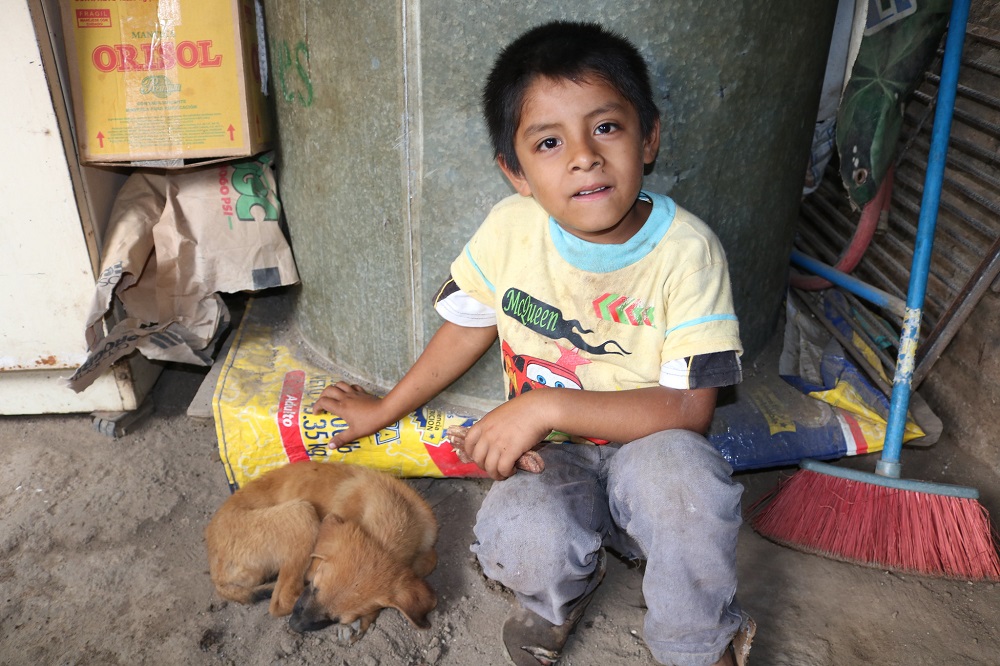
Many people may be surprised to discover that most of the children at Dorie’s Promise have at least one living biological parent. In reality, we’re a home for orphaned and abandoned children, as well as foster children. Understanding why so many children enter Guatemala’s family court system requires an honest look at poverty’s effects on families.
In our home and in the communities we serve, we see the effects of poverty on every aspect of life. Children find their way to Dorie’s Promise as a result of abuse, neglect, lack of resources, and sometimes the heart-breaking choice to relinquish parental rights. Poverty is not just about money. Although income plays a major role, the effects of physical, social, and emotional poverty are undeniable.
Understanding poverty
We want you to understand the harsh realities our children faced b efore living at Dorie’s Promise because those experiences impact who they are and how they process life. At the same time, we’re careful when we share their stories because we believe they are not defined by the struggles they’ve overcome. Instead, we want you to appreciate who they are and the future they have ahead.
efore living at Dorie’s Promise because those experiences impact who they are and how they process life. At the same time, we’re careful when we share their stories because we believe they are not defined by the struggles they’ve overcome. Instead, we want you to appreciate who they are and the future they have ahead.
Almost 60% of Guatemalans live in poverty. [1] Many agricultural workers and laborers earn just $12-$18 per day. Understandably, many families struggle and those challenges affect every aspect of their lives. Although money is not the only form of poverty, lacking sufficient income makes everything else more difficult.
Poverty extends further than money
The lack of physical, emotional, and social basics causes families and communities to struggle and eventually fail. Although many of our children have living parents, they aren’t together as families because poverty creates a crisis, and a crisis can create separation.
The basic physical needs we take for granted every day—a safe home, ample food, and access to healthcare—are luxuries for some families in Guatemala. This is why our mission teams build kitchens, install stoves, and pour concrete floors. A concrete floor promotes cleanliness and stops water from running through homes. New stoves allow families to stop cooking on the floor. Buildings made of metal are safer than those cobbled together from scraps. Hearing the gratitude from those we serve reminds us of the gifts we’ve been given and our responsibility to help others. Seeing kids after they receive beds for the first time never gets old. Such simple changes make a huge difference.

Raising strong, independent young adults is one of our goals. Doing so gives our kids the best chance to overcome poverty. This is why we choose high-quality, individualized education for our kids. The families we work with are not lazy. Unfortunately, they don’t the same opportunities as those with greater incomes. Even though public schools are free, for many families the cost of school supplies is too much and they can only survive if their children earn money also. It’s hard to change circumstances when their children aren’t finishing school. This isn’t what they want for their children, but it’s the only way they stay together as a family. Being together as a family is their goal.
Unfortunately, the layers of poverty can be overwhelming and some families can’t survive. These are the instances most often bringing children to Dorie’s Promise. The stress of poverty causes emotional and mental strain for everyone, both parents and children. Sometimes this leads to abuse, neglect, and addictions. Other times, parents realize their needs and relinquish their children to the court system. We’ve experienced all of these situations in our home. Our children carry their stories, while also carrying hope for a better future.
Overcoming poverty
Our children can overcome poverty with help, as can the families we serve. As supporters of Dorie’s Promise, you’re helping us transform the lives of our children. Your support provides all of the resources we use to help our children heal and prepare for their futures. When you join us on a missions trip, you’re serving families who aren’t asking for a hand-out, they’re asking for an opportunity.
Working together, we’re fighting poverty’s effects on families by providing children and families an opportunity to change their lives. Thank you for helping us preserve families, care for orphans, and transform lives.
[1] “The World Factbook: Central America: Guatemala,” Central Intelligence Agency, accessed April 29, 2019,